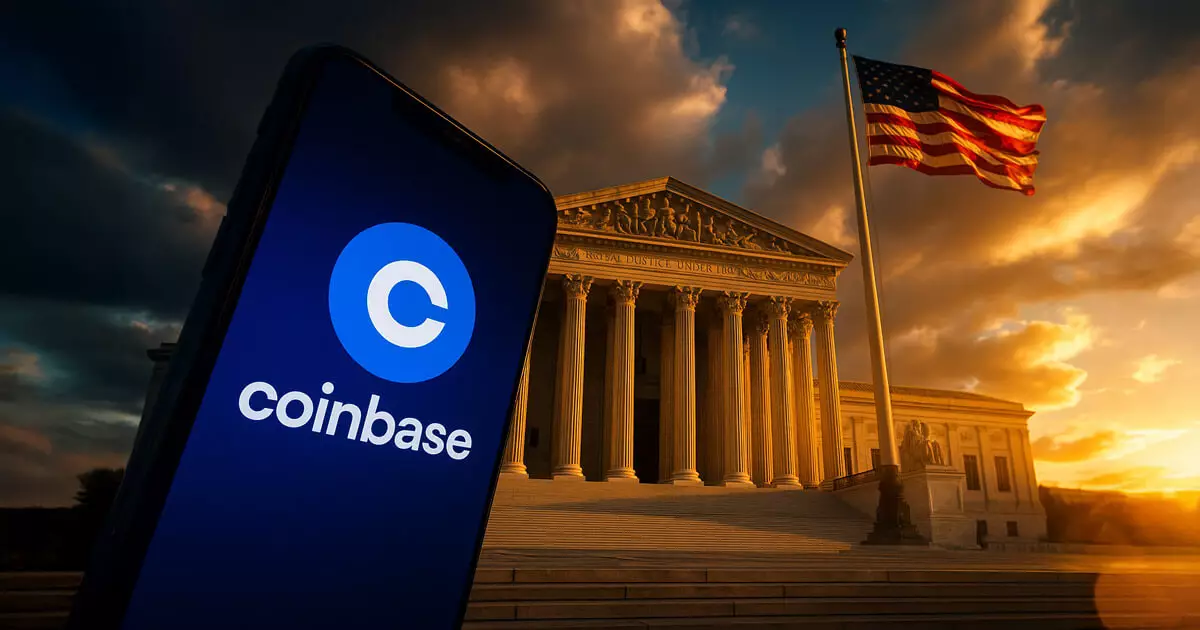In a decisive blow to financial privacy, the U.S. Supreme Court’s refusal to hear the Harper case cements a troubling precedent: the federal government now has expansive authority to scrutinize cryptocurrency users’ data held by centralized exchanges like Coinbase. By declining to intervene, the Court effectively ratifies lower court rulings that endorse broad IRS access to account information without the necessity of specific warrants. This abdication signifies more than just a legal setback; it illustrates an alarming shift in the balance of power, favoring government surveillance over individual liberties. It is a stark reminder that in the digital age, traditional notions of privacy—once protected fiercely by the Fourth Amendment—are rapidly eroding, especially when it comes to financial transactions on trusted third-party platforms.
This silence from the highest court signals tacit approval of the government’s expanded reach. Without a clear legal challenge, the Behörden’s ability to compel centralized exchanges to disclose user information is now immunized by precedent. The implications are monumental: millions of Americans engaging in cryptocurrencies via platforms like Coinbase find their transactions, holdings, and activity potentially exposed to federal scrutiny under the guise of tax enforcement. It underscores an implicit message that privacy protections, once thought to be inviolable, are conditional and increasingly subordinate to regulatory oversight.
The Legal Foundation: The Third-Party Doctrine in the Digital Era
The crux of this ruling hinges on a long-standing principle known as the third-party doctrine. Traditionally, the doctrine asserts that individuals relinquish certain expectations of privacy once they share information with third parties—be it banks, telecom providers, or, now, cryptocurrency exchanges. The doctrine’s roots lie in a pre-digital era, but its application has proved resilient in courts, equating data shared with third parties to consenting to government access.
However, this principle is under severe strain in the context of today’s technological advancements. Digital assets and financial data are inherently more sensitive—transactions are continuous, detailed, and reveal more about personal lives than ever before. Nevertheless, courts continue to uphold the idea that once you willingly entrust your financial details to a service provider, you forfeit significant privacy rights, thereby easing the government’s path to access with a mere subpoena instead of a probable-cause warrant.
This legal stance dangerously simplifies privacy concerns, particularly in a climate where the line between legitimate enforcement and selective fishing expeditions is blurred. It essentially means that transactions on Coinbase—an ostensibly private activity—are treated almost akin to public records, accessible with minimal legal barriers. For users, this is a wake-up call: in the eyes of the law, sharing data with a third party is a one-way ticket to being scrutinized by the state.
Implications for Crypto Investors and Industry Dynamics
The ruling’s real-world implications will reverberate through the cryptocurrency landscape, shaping user behavior and industry standards. The IRS’s triumph sends a clear message: compliance is non-negotiable for centralized institutions. As a result, the crypto industry faces mounting pressure to facilitate government requests, transforming what once was a realm of privacy and autonomy into a digital extension of traditional financial surveillance.
In response, many users now see the appeal of self-custody wallets and decentralized exchanges. These alternatives empower individuals to retain control over their private keys, circumventing the prying eyes of authorities. Yet, the reach of government surveillance extends beyond simple exchanges—once you move your assets away from centralized custodians, the legal landscape becomes murkier, but the threat persists.
The broader trend signals a looming clash between individual liberty and state power. While decentralization offers some respite, it cannot fully shield users from the overarching legal framework that favors government access over private control. The message is unambiguous: if you want privacy, you need to evolve beyond the dominant centralized platforms and accept the trade-offs that come with non-compliance.
Power Politics and the Future of Financial Privacy
This legal verdict is a victory for government agencies aiming to tighten control over the rapidly growing crypto economy. The IRS considers data access a necessary tool in closing the tax gap and cracking down on unreported income. However, this approach risks overreach, setting a dangerous precedent where financial privacy is subordinated to regulatory convenience.
Moreover, the case underscores that, in the eyes of the law, digital assets brushed into the realm of traditional finance, becoming subject to the same invasive scrutiny that banks have long endured. It reveals a philosophical shift: that the era of financial privacy is waning, replaced by a model of constant oversight. This is a troubling development for those who believed in a future where individuals could transact with ample privacy and autonomy, free from governmental prying eyes.
The political implications are equally noteworthy. Center-right elements that advocate for limited government interference may find themselves contesting such expansive surveillance measures, recognizing that unchecked data collection can erode trust and threaten personal freedoms. Yet, the current legal stance indicates that, at least for now, the state’s appetite for oversight supersedes concerns over privacy.
While defenders argue that these measures are necessary for tax compliance and security, the long-term consequences pose a profound risk to civil liberties. The battle for digital privacy is not over, but the Supreme Court’s silence emboldens the surveillance state, making it all the more difficult for individual rights to stand firm amid mounting regulatory pressures.


Leave a Reply